#eugene wrayburn
Explore tagged Tumblr posts
Text
paul mcgann dead fish eyes type dude like a seal attacked by a polar bear at every moment of every day he looks like he has no feelings ever and i love it for him
#paul mcgann#is he hot? yes#but at what cost#dead fish eyes#eighth doctor#8th doctor#withnail and i#marwood#our mutual friend#eugene wrayburn
23 notes
·
View notes
Text
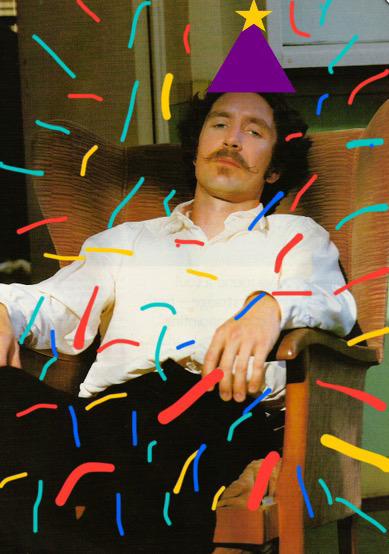
In honor of this week's episode, behold: the iconic piece of art one of Maggie's best friends made for her birthday this year. Do with it what you will.
#paul mcgann#girlies for mcgann#our mutual friend#eugene wrayburn#we refer to him as birthday paul he's perfect
11 notes
·
View notes
Text
“It is not easy for me to talk to you,” returned Lizzie, in some confusion, “for you see all the consequences of what I say, as soon as I say it.”
— Our Mutual Friend (Charles Dickens)
3 notes
·
View notes
Text
Not to victim blame... but I do occasionally have to stop and wonder what on earth Eugene Wrayburn was thinking.
#don't antagonise people eugene#because then...#people are going to be antagonised#eugene wrayburn#our mutual friend#queue
9 notes
·
View notes
Text
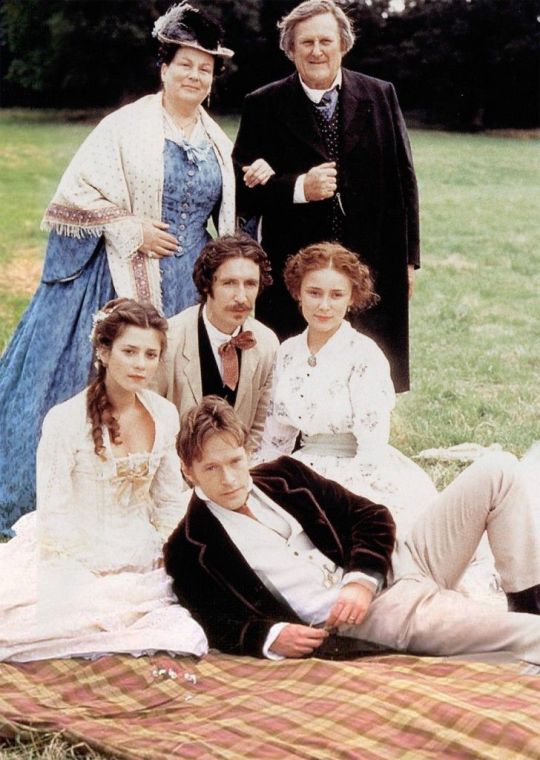
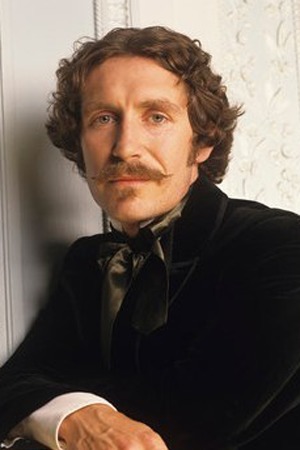

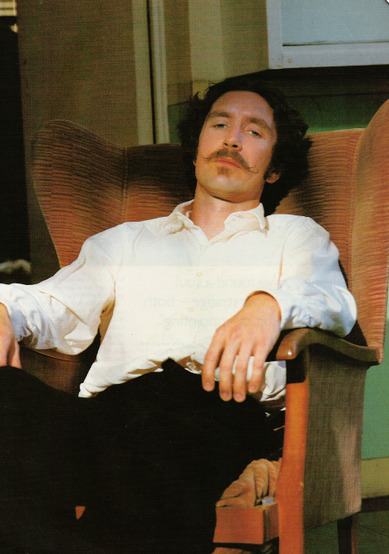

A few promo shots of Paul McGann as Eugene Wrayburn, from Our Mutual Friend (1998) that I have stumbled across...
#mcgann and dickens is a must have for me haha#though this not a novel i have read yet#nor have seen#but it has paul soooo#why not#that fake mustache though#XD#paul mcgann#our mutual friend#mcgann monday
37 notes
·
View notes
Text
"OUR MUTUAL FRIEND" (1998) - Second Review
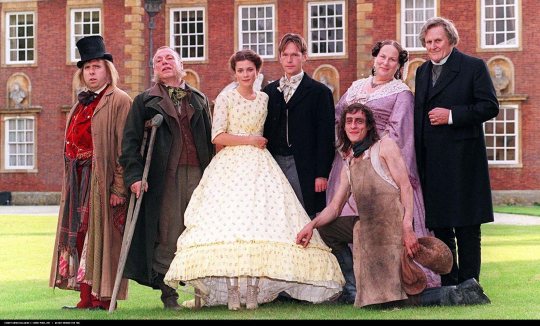
"OUR MUTUAL FRIEND" (1998) Second Review
Several years ago, I had written a review of "OUR MUTUAL FRIEND", the BBC's 1998 adaptation of Charles Dickens' 1865 novel. Needless to say, my opinion of it proved to be mixed. But after numerous re-watches of the four-part miniseries, I came to the conclusion that my views had undergone a tremendous change . . . as the following new review will convey.
During my recent re-watch of "OUR MUTUAL FRIEND", I continued to find it a complicated tale. It featured at least four subplots (and not three, as I had originally assumed). And they all stemmed from the alleged death of John Harmon, the estranged heir to a fortune created by his father, a former collector from London's rubbish. "OUR MUTUAL FRIEND" began with a solicitor named Mortimer Lightwood informing the circumstances on the death of his late client and the details of Mr. Harmon Sr.'s will to his aunt and a group of listeners at a London society party. According to Lightwood, Mr. Harmon made his fortune from London's rubbish. The terms of his will stipulated that his fortune should go to John, returning to Britain after years spent abroad. The will allowed John to inherit his father's money on the condition that he marry a woman he has never met, Miss Bella Wilfer. However, Lightwood received news that John Harmon's body had been found in the Thames River. He and his close friend, Eugene Wrayburn, head toward the river to identify the body. And it was this sequence that led to the following subplots:
*Mr. Harmon's employees, Nicodemus and Henrietta Boffin inherit the Harmon fortune and take Bella Wilfer on as a ward/companion to compensate for her loss, following John Harmon's "death".
*John Harmon fakes his death and assumes the identity of John Rokesmith, the Boffins' social secretary, in order to ascertain Bella Wilfer's character.
*Gaffer Hexam, the waterman and scavenger who found Harmon's "body", ends being accused of murdering "Harmon" by Hexam's duplicitous former partner, Roger "Rogue" Riderhood.
*While accompanying his friend, Mortimer Lightwood, to identify Harmon's body, Eugene Wrayburn meets and falls in love with Hexam's daughter, Lizzie.
*Bradley Headstone, the schoolmaster of Charley Hexam, Lizzie's younger brother, develops a romantic, yet violent obsession with Lizzie and a deep hatred of Eugene.
*Mr. Boffin hires a ballad-seller with a wooden leg named Silas Wegg to read for him. When he finds Harmon's will in one of the Harmon dust piles, Wegg schemes with a taxidermist named Mr. Venus to blackmail the newly rich dustman.
*Mr. and Mrs. Lammle, a society couple who had married each other for money and discovered that neither had any, plot to swindle Mr. Boffin of his money.
I have experienced a handful of movies, novels and television shows in which disparate subplots eventually form into one main narrative. A major example of this was the 2002 novel and its 2008 movie adaptation, "MIRACLE AT ST. ANNA". But I cannot recall any form of fiction in which a particular narrative divides into a series of subplots from one main action or character. When I first saw "OUR MUTUAL FRIEND", I found this narrative device not only original, but rather disconcerting.
The problem I initially had with "OUR MUTUAL FRIEND" was that I only enjoyed only one major subplot - the bizarre "love triangle" between Eugene Wrayburn, Lizzie Hexam and Bradley Headstone. I cannot deny that I found it very interesting and very tense. Yet another re-watch of the miniseries made me aware of the mistakes I had made in judgment. One, my views of the miniseries' other subplots turned out to be more interesting than I had initially assumed. It finally occurred to me how wealth, greed and/or class played major roles in Dickens' story. The Harmon fortune had attracted greedy types like Silas Wegg and the Lammles. Even Bella Wilfer was willing to use the Boffins to find a wealthy husband within London's high society. Gaffar Hexam's discovery of the fake John Harmon's body and the reward he had received led his greedy and jealous former partner to accuse him of murder.
John's deception also exposed a good deal of class bigotry in this tale. Upper-class types like Lady Tippins seemed appalled at the idea of lower-class citizens like the Boffins inheriting a large fortune. She seemed to harbor this attitude that attorney Mortimer Lightwood should automatically take control of the Harmon fortune. As the Boffins' protégé, Bella initially regarded John as beneath her, due to his position as the Boffins' social secretary, John Rokesmith. Class bigotry practically reeked throughout the love triangle between Lizzie, Eugene and Bradley. Despite being in love with Lizzie, the upper-class Eugene seemed more wiling to view her as a potential mistress, instead of a wife. Bradley Headstone, who came from the same class as Lizzie, seemed more than willing to marry her. Yet, he also regarded her as being socially beneath him, due to her lack of education. He seemed to believe Lizzie should be grateful to marry him and reacted with surprise when she rejected his offer. And Eugene not only regarded Bradley as a romantic rival, but also as a man who was socially beneath him. The miniseries ended with Mortimer Lightwood attending a society party aboard a River Thames steamer. He and a shy man named Mr. Tremlow defended a particular marriage that crossed class lines, despite the other partygoers' disapproval and contempt. This ending is one of the main reasons I truly enjoy this adaptation of Dickens' novel. I found it emotionally satisfying, yet very poignant.
Sandy Welch made some changes in Dickens' narrative. Instead of pursuing heiress Georgiana Podsnap and attempting to trap her into marriage with fortune hunter Fascinating Fledgby, Alfred and Sophia Lammles set their sights on the Boffins' money. Welch's screenplay had excluded Fledgby altogether, along with his moneylending business. These changes made sense to me, considering the Lammles' arc with Fledgby and Miss Podsnap had nothing to do with John Harmon or his fortune. The Lammles met a nameless heiress (a stand-in for Georgiana Podsnap?) at a rail station near the end, as they boarded a train for Dover and the English Channel. Due to Welch's erasure of the Fledgby character, she reduced Mr. Riah's character as a close friend of both Lizzie and her friend, dollmaker Jenny Wren. Mr. Riah only played a role by helping Lizzie find a job outside of London.
It seemed a pity that Welch had eliminated the Fledgby character and his arc with Mr. Riah. It would have given the miniseries a peek into Victorian anti-Semitism, something the novel managed to achieve on a small scale. But as I had pointed out - Fledgby and Mr. Riah's arc had no connection to John Harmon, his fortune and his deception. To understand what I am trying to say, let me clarify. All of the other arcs in "OUR MUTUAL FRIEND" either began with Mr. Harmon Sr.'s will or with John Harmon's actions following his arrival in London. The former's will led John to create and participate in his deception in order to judge Bella. If Mr. Harmon had not made that condition for John to marry Bella in order to inherit his fortune, chances are John would have never conceived his deception. He would have never been attacked by the man he had recruited to impersonate him. Hexam would have never found the impersonator's body and found himself falsely accused of murder by his former partner.
Even if Mr. Harmon's will had not changed, John could have simply adhered to and inherit his father's fortune, leading to a possible loveless marriage to Bella. With no body to find, Mortimer and especially Eugene would have never met Lizzie. As Charly Hexam's tutor, Bradley Headstone probably would have met Lizzie and fallen in love with her anyway. But I believe she still would have rejected him. It is possible the Lammles would have focused their attention on John. But I suspect they would have very little success in befriending him. If John had immediately inherited his father's fortune, the Boffins would have inherited one of the Harmons' dust piles. Does this mean Mr. Boffin would have hired Wegg as his reader anyway? I wonder.
I cannot deny that "OUR MUTUAL FRIEND" did such an excellent job in exploring the effects of wealth, greed and class in Victorian London. All or most of the subplots seemed to flow from John Harmon and his decision to fake his death. Like the River Thames that flows through southern England and London. Is it any wonder that Dickens had decided to set his novel along the river - even outside of London? The story began with Lizzie and and her father scavenging along the Thames and ended on that lovely moment when both Mortimer and a shy man named Mr. Tremlow defended a recent marriage that crossed class lines at a society party aboard a steamer on the river.
As for the production values for "OUR MUTUAL FRIEND", I still remain impressed as ever. David Odd's cinematography still strikes me as colorful and epic. I am not surprised that he had received a BAFTA Award nomination for his work. Malcolm Thornton won a BAFTA Award for the miniseries' excellent production designs. His recreation of mid-19th century London and the River Thames struck me as colorful, well-detailed and just outstanding. Mike O'Neil had earned a BAFTA nomination for his costume designs. A part of me wish he had won. I still find them beautiful and a near reflection of Britain in the 1860s, as shown in the images below:
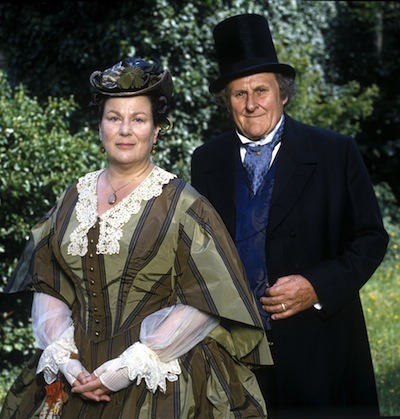
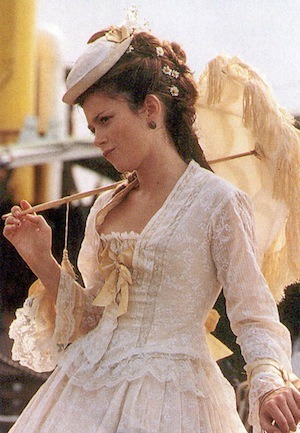
My opinion of "OUR MUTUAL FRIEND" may have improved over the years, but I still have a few issues with it. One of those issues remained John Harmon's deception regarding his identity - namely how it affected Bella Wilfer. I still find it problematic that John did not reveal his true identity to her, until a few months after their wedding. And I found Bella's lack of hostility toward his revelation implausible. Although I found Silas Wegg's attempt to blackmail Mr. Boffin interesting, I found his constant complaints about his target and plotting with Mr. Venus rather irritating after two episodes or so.
The performances featured in the 1998 miniseries more than satisfied me. I found Harmon's gradual love for Bella very interesting to watch, thanks to Steven Mackintosh's subtle performance. And Anna Friel did a great job in developing Bella Wilfur from a materialistic and ambitious young woman, to one for whom love and morality meant more to her than material wealth. "OUR MUTUAL FRIEND" also featured excellent performances from Peter Vaughn and Pam Ferris as the Boffins, Kenneth Cranham as Silas Wegg, Margaret Tyzack as the imperious Tippins, and Dominic Mafham as Mortimer Lightwood. The miniseries also featured first-rate supporting performances from the likes of David Schofield as the no-nonsense Gaffer Hexam, Anthony Calf and Doon Mackichan as the Lammles, Paul Bailey as Charley Hexam, Peter Wight as Mr. Wilfer, Cyril Sharps as the kindly Mr. Riah, Linda Bassett as pub owner Abby Potterson, Edna Doré as the kindly, yet proud Betty Higden; and Robert Lang as the reserved and shy Mr. Tremlow, whom I believe provided one of the best moments in the series.
But there seemed to be performances that I believe stood above the others. Timothy Spall gave one of his more subtle performances as the enigmatic taxidermist Mr. Venus, who found himself drawn reluctantly in Wegg's scheming. Some have complained that Katy Murphy had been too old, as a thirty-something actress, to portray dollmaker Jenny Wren, a character in her late teen or early 20s. But the other two actresses I have seen portray Jenny were either 30 or older, so I do not understand the complaint. And Murphy did such an excellent job in conveying Jenny's emotional, yet blunt personality. I thought David Bradley did a superb job in his portrayal of the sly, yet malevolent waterman, Rogue Riderhood. Unlike other actors in the role, he did not succumb to occasional histrionics.
In my previous review of "OUR MUTUAL FRIEND", I had accused David Morrissey of engaging in histrionics in his portrayal of the violently jealous headmaster, Bradley Headstone. I had been wrong. Morrissey only did it once in a scene that featured Lizzie Hexam's rejection of his marriage proposal. Otherwise, I thought the actor gave a brilliant performance. One would think portraying the reserved Lizzie Hexam would be a walk in the park for any actress. Yet, I believe Keeley Hawes took the portrayal to another level by not only conveying Lizzie's dislike of Headstone, and her wariness toward Eugene Wrayburn's feelings for her; but also her streak of insecurity that led her to doubt her worthiness for someone like Eugene. I had earlier accuse the actress of being unable of to express Lizzie's true feelings for Eugene until the last episode. But I forgot that Hawes did convey moments of attraction toward Eugene. And in portraying a reserved character like Lizzie, she did an effective job of conveying the character's penchant for keeping such feelings closely to her chest. I have said this before and I will say it again - I believe Paul McGann gave the best performance in "OUR MUTUAL FRIEND", for his portrayal of the ambiguous Eugene Wrayburn. If one closely observe the character, he is not exactly a nice man. At least most of the time. McGann did a beautiful job in his portrayal of the indolent, yet patronizing attorney; conveying both the negative and surprisingly, the character's positive traits. And thanks to McGann's performance, one could see Eugene's struggle between his love for Lizzie and his wariness over her class.
Do I still believe "OUR MUTUAL FRIEND" was flawed? Well . . . I point out a few. As I had stated in my previous review, the 1864-65 novel is not considered among Charles Dickens' best works. But my opinion of the 1998 adaptation certainly has improved a great deal over the years. Screenwriter Sandy Welch and director Julian Farino did excellent jobs in translating Dickens' tale to the television screen. And the production not only featured first-rate work from the crew, but also superb performances from an excellent cast led by Steven Mackintosh. If I must be honest, not only has my opinion of "OUR MUTUAL FRIEND" improved over the years, I now consider it one of the best adaptations of any of Dickens' works.
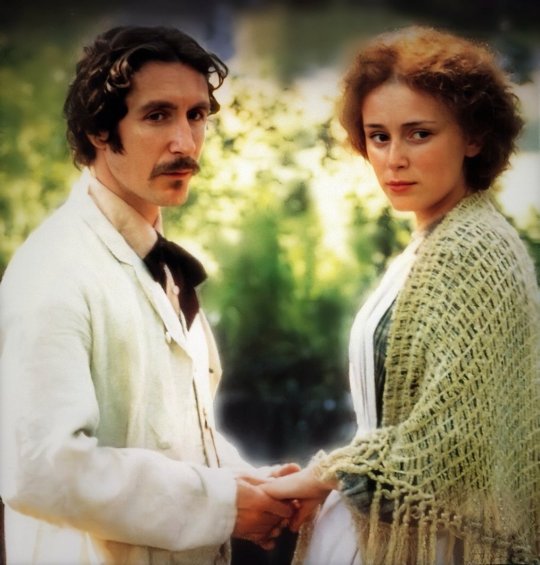
#our mutual friend#our mutual friend 1998#sandy welch#julian farino#steven mackintosh#anna friel#paul mcgann#keeley hawes#dominic mafham#peter vaughan#pam ferris#david morrissey#katy murphy#kenneth cranham#timothy spall#david bradley#paul bailey#peter wight#anthony calf#doon mackichan#linda bassett#cyril sharps#edna dore#robert lang#david schofeld#charles dickens#period drama#period dramas#costume drama
9 notes
·
View notes
Text
Current Submissions
Submissions remain open until ~10pm pst tomorrow (March 3rd); submit through this form or the ask box
Those who have secured spots on the bracket (3 or more submissions);
Elizabeth Bennett & Fitzwilliam Darcy from Pride and Prejudice by Jane Austen
Enjolras & Grantaire from Le Misérables by Victor Hugo
Victor Frankenstein & Henry Clerval from Frankenstein by Mary Shelly
Faustus & Mephistopheles from Dr Faustus by Christopher Marlowe
Ishmael & Queequeg from Moby-Dick by Herman Melville
Mina & Johnathan Harker from Dracula by Bram Stoker
Henry Jekyll & Gabriel Utterson from The Strange Case of Dr Jekyll and Mr Hyde by Robert Louis Stevenson
Other possible contenders (under read more);
Offred & Moria from The Handmaid's Tale by Margaret Atwood
Celie & Shug from The Color Purple by Alice Walker
Lestat & Marius from The Vampire Chronicles by Anne Rice
Gimli & Legolas from Lord of the Rings by JRR Tolkien
Samwise Gamgee & Frodo Baggins from Lord of the Rings by JRR Tolkien
Gandalf & Hobbits from the works of Tolkien
Romeo & Juliet from Romeo and Juliet by William Shakespeare
Clarissa Dalloway & Sally Seton from Mrs Dalloway by Virginia Woolf
Anne Elliot & Frederick Wentworth from Persuasion by Jane Austen
Emma Woodhouse & George Knightley from Emma by Jane Austen
Maurice & Alec from Maurice by EM Forster
Margaret & Thornton from North and South by Elizabeth Gaskell
Holden Caufield & Stradletter from The Catcher in the Rye by JD Salinger
Charlie & Patrick from The Perks of Being a Wallflower by Stephen Chbosky
Gene Forrester & Finny from A Separate Peace by John Knowles
Tom Sawyer & Huckleberry Finn from the works of Mark Twain
John Yossarian & the Chaplain from Catch-22 by Joseph Heller
Jane Eyre & Helen Burns from Jane Eyre by Charlotte Brontë
Lionel Verney & Adrian Windsor from The Last Man by Mary Shelly
Eugenie Danglars & Louise d'Armilly from The Count of Monte Cristo by Alexandre Dumas
Dante & Virgil from The Divine Comedy by Dante Alighieri
Hamlet & Horatio from Hamlet by William Shakespeare
Lizzie Hexam & Eugene Wrayburn from Our Mutual Friend by Charles Dickens
Phileas Fogg & Passepartout from Around the World in 80 Days by Jules Verne
Huckleberry Finn & Jim from the works of Mark Twain
Sherlock Holmes & John Watson from Sherlock Holmes by Sir Arthur Conan Doyle
Lord & Lady Macbeth from Macbeth by William Shakespeare
Beatrice & Benedick from Much Ado About Nothing by William Shakespeare
Gilgamesh & Enkidu from The Epic of Gilgamesh
Heathcliff & Catherine Earnshaw from Wuthering Heights by Emily Brontë
Mr. Collins & Elizabeth Bennett from Pride and Prejudice by Jane Austen
Victor Frankenstein & Adam ('the creation') from Frankenstein by Mary Shelly
Dorian Gray & Lord Henry from The Picture of Dorian Gray by Oscar Wilde
Rodion Raskolnikov & Mitya Razumikhin from Crime and Punishment by Fyodor Dostoyevsky
Rosencrantz & Guildenstern from Hamlet by William Shakespeare
First Mate Starbuck & Captain Ahab from Moby-Dick by Herman Melville
Charles Bingley & Fitzwilliam Darcy from Pride and Prejudice by Jane Austen
Jane Eyre & Mr. Rochester from Jane Eyre by Emily Brontë
Jean Valjean & Inspector Javert from Le Misérables by Victor Hugo
Victor Frankenstein & Robert Walton from Frankenstein by Mary Shelly
Mary Catherine Blackwood & Constance Blackwood from We Have Always Lived in the Castle by Shirley Jackson
Benvolio & Mercutio from Romeo and Juliet by William Shakespeare
Achilles & Patroclus from The Illiad
Ajax & Ajax from The Illiad
Jack & Ralph from The Lord of the Flies by William Golding
Telemachus & Theoclymenus from The Odyssey
Jo & Laurie from Little Women by Louisa May Alcott
Elinor Dashwood & Edward Farrars from Sense and Sensibility by Jane Austen
Charles Bingley & Jane Bennett from Pride and Prejudice by Jane Austen
Jo, Amy, Meg, & Beth from Little Women by Louisa May Alcott
Jack Seward & Abraham van Helsing from Dracula by Bram Stoker
Henry Jekyll & Edward Hyde from The Strange Case of Dr Jekyll and Mr Hyde by Robert Louis Stevenson
Ned Land & Conseil from 20,000 Leagues Under the Sea by Jules Verne
Earl of Montararat & Earl Tolloler from Iolanthe
Fogg, Passepartout, & Aouda from Around the World in Days by Jules Verne
Guy Montag & Professor Faber from Fahrenheit 451 by Ray Bradbury
Nick Carraway & Jay Gatsby from The Great Gatsby by F. Scott Fitzgerald
Napoleon & Squealer from Animal Farm by George Orwell
Antonio & Sebastian from Twelfth Night by William Shakespeare
Antonio & Sebastian from The Tempest by William Shakespeare
29 notes
·
View notes
Text
i know paul mcgann was the 8th doctor and that chap from withnail and i but to me he is eugene wrayburn from 1998 bbc mini series our mutual friend adapted from the charles dickens novel of the same name. what's he doing talking to an american cop..
5 notes
·
View notes
Link
harrietvane's tags#dorothy l sayers#i’ve been thinking about this lately in relation to dickens and Our Mutual Friend#being that the john [redacted] rokesmith story is driven by an inability to propose marriage on anything but degrading terms for bella#in his original state as it were#so it’s an in-story form of that where the character acknowledges that a proposal in the oridinary sense#would represent a transactional process in such a way as would make it impossible for self-respect and honest feelings to be maintained#so hilariously he resolves this impasse by embarking on a MASSIVE LONG CON the absolute madman#‘in order for us to relate to each in honest emotional equality i must tell more and bigger lies than anyone in the history of time’#i mean only the fact that he’s in a book with bradley headstone and eugene wrayburn saves him by comparison#they set the bar so low he comes out of it looking relatively clean#he’s definitely one of my favourite con artist creeps in all literature#pursuing the goal of ‘necessary romantic integrity’ through the medium of lying on a truly staggering scale#anyway clearly tonight is an ‘Our Mutual Friend is about integrity - discuss’ sort of night#i like to party hard you see
The essay “Gaudy Night” by Dorothy L. Sayers, discussing the hows and whys of her writing of the novel. First published (in a longer version) in Titles to Fame (1937), edited by Denys Kilham Roberts, in which several authors reflect on their most well-known work.
I could not marry Peter off to the young woman he had (in the conventional Perseus manner) rescued from death and infamy, because I could find no form of words in which she could accept him without loss of self-respect. I had landed my two chief puppets in a situation where, according to all the conventional rules of detective fiction, they should have had nothing to do but fall into one another’s arms; but they would not do it, and that for a very good reason. When I looked at the situation I saw that it was in every respect false and degrading; and the puppets had somehow got just so much flesh and blood in them that I could not force them to accept it without shocking myself. So there were only two things to do: one was to leave the thing there, with the problem unresolved; the other, far more delicate and dangerous, was to take Peter away and perform a major operation on him. If the story was to go on, Peter had got to become a complete human being, with a past and a future, with a consistent family and social history, with a complicated psychology and even the rudiments of a religious outlook. And all this would have to be squared somehow or other with such random attributes as I had bestowed upon him over a series of years in accordance with the requirements of various detective plots.
Thanks, smokeandsong, for sharing this!
Bonus: the first page of a typescript of the essay (from the Dorothy L. Sayers Papers at the Harry Ransom Center, University of Texas at Austin):
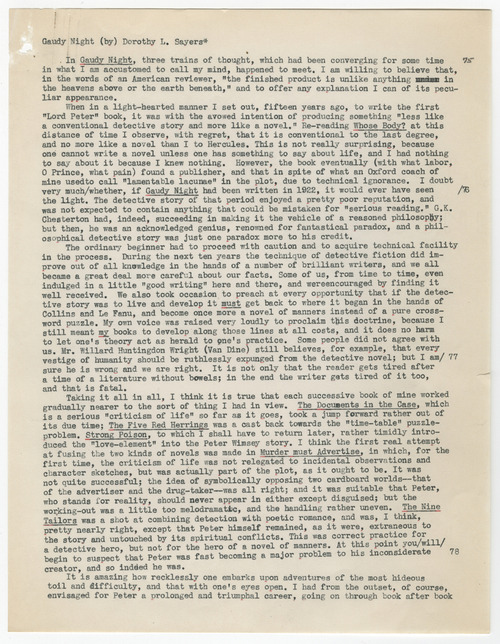
940 notes
·
View notes
Text
Queer reading chapters 8 and 10 of our Mutual Friend:
Chapter 8:
I think this is the first time we see Mortimer Lightwood without the presence of Eugene Wrayburn, in his professional legal meeting with Mr Boffin.
However, by the end of the sequence (this chapter is essentially three sequences: 1. Mr Boffin & Blight, 2. Mr Boffin & Mortimer Lightwood, 3. Mr Boffin & John Rokesmith) Eugene makes an appearance. Since he appears in the doorway of Mortimer's office, I think it can be reasonably assumed that Eugene was coming to see Mortimer. It's not stated why Eugene is there. Had he and Mortimer perhaps arranged to have lunch together? Who knows - the point is, this early on in the book, we pretty much always see Eugene and Mortimer together. They are sometimes talked of apart, but when we, the audience, 'see' them in a scene, they're together for at least some of that scene.
Chapter 10:
Mortimer Lightwood, hilariously, takes the role of Mr Lammle's best man "though he doesn’t see what he has to do with it" because he doesn't really know him. Again, Mortimer is talked of without Eugene being mentioned, but whenever Mortimer is actually present within chapter 10, Eugene is mentioned soon afterwards.
Again, Dickens is drawing a connection between these two men and getting us to associate them with each other.
However, it's not really Eugene and Mortimer I thinks are particularly queer in this chapter, but Mr Twemlow:
And after that, the bridesmaids begin to come by rail-road from various parts of the country, and to come like adorable recruits enlisted by a sergeant not present; for, on arriving at the Veneering depot, they are in a barrack of strangers. So, Twemlow goes home [...] and is distinctly aware of a dint in his heart, made by the most adorable of the adorable bridesmaids. For, the poor little harmless gentleman once had his fancy, like the rest of us, and she didn’t answer (as she often does not), and he thinks the adorable bridesmaid is like the fancy as she was then (which she is not at all), [...]. Brooding over the fire, with his dried little head in his dried little hands, and his dried little elbows on his dried little knees, Twemlow is melancholy. ‘No Adorable to bear me company here!’ thinks he. ‘No Adorable at the club! A waste, a waste, a waste, my Twemlow!’ And so drops asleep, and has galvanic starts all over him.
HELLO?
'No adorable [at home]; no adorable at the club'?!?
When I first read Our Mutual Friend a couple of years ago, I stopped the audiobook at this point and just sat there like, 'surely this cannot be a canon bisexual character in 1864?' But in the couple of years since then I have neither seen nor thought of a sufficiently compelling alternative explanation.
Here's the thing: from what I can tell, women were not allowed to join clubs during the 1860s. Later in the century, ladies would be able to join certain clubs, and a little in advance of that they might be allowed into men's clubs on special visitors days. But during the 1860s neither of those things could happen. The members of clubs were all men. Even the customer-facing staff (such as waiters) would be men. The only women who would be allowed in the building at all would be servants in non-customer facing roles (so you wouldn't even get a barmaid, as you would at a pub). Men from out of town who stayed in the bedrooms set aside for that purpose might see women tending their fires and doing other menial tasks, but the likelihood that Mr Twemlow (who lives in London) would even see a woman at his club is slim, and that he would be able to see her often enough to be able to develop any kind of 'companionship' with her at the club, much slimmer. And if he did, it would be a lower-class woman, not someone of his own class.
(And if what Twemlow was lamenting here was the lack of companionship from a lower-class woman, I really think Dickens would make more use of that, considering the class themes in the novel as a whole, considering one of the novel's main love stories, and considering Twemlow's role in the final chapter)
Clubs were very homosocial spaces, and homosocial bonds were forged there.
It really does seem to me Mr Twemlow is lamenting his lack of having any man at the club he shares a particular homosocial bond with, and who would keep him company there. He laments this equally with lamenting that there is nobody at his home to keep him company (as a wife might), and in the context of thinking about a woman he almost married, implying that the hypothetical 'adorable at the club' would be the equivalent of a hypothetical wife.
(This idea is given strength, I think, by the final chapter and who he is paired with in that chapter)
This really does seem about as close to canon bisexuality as you can get in a mainstream British novel in the 1860s.
(And in terms of how Dickens 'got away with' including this, my assumption is that people who would not be willing to entertain the idea that an 'adorable [man] at the club' could be an equal companion to a man as a woman at home could be, would basically think something along the lines of 'haha silly Twemlow, how could there be an adorable at the club')
Not really related to queer reading, but: I think it's interesting that Twemlow thinks his lack of companionship is "A waste, a waste, a waste," considering the other types of waste, and the reuse of waste, that this book explores.
[EDITED TO ADD: if anyone comes upon this in future and does have an alternative explanation for "adorable at the club", or any other information about women in clubs, or anything either supporting or denying my ideas here, please please do let me know.]
0 notes
Text
"OUR MUTUAL FRIEND" (1976) Review
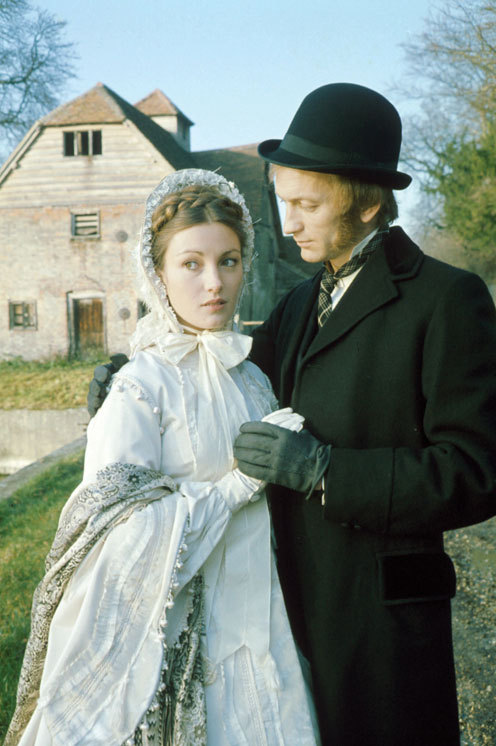
"OUR MUTUAL FRIEND" (1976) Review
I have a curious history with the 1998 adaptation of Charles Dickens' 1864-65 novel, "Our Mutual Friend". I had a lukewarm reaction to it when I first saw it. Following two re-watches of the miniseries, I became a major fan of it. So, when I discovered there had been an earlier adaptation of the novel, I did not hesitate to watch it. My efforts to view the 1976 miniseries, "OUR MUTUAL FRIEND" proved to be difficult, due more to availability reasons. But I finally managed to achieve it in the end.
Whether you are familiar with Dickens' tale or not, "OUR MUTUAL FRIEND" centered around the "death" of the heir to a fortune inherited from his father, a former collector from London's rubbish. The story begins with a solicitor named Mortimer Lightwood, who narrates the circumstances of the death of his client, a former dustman named Mr. Harmon, who collected London's rubbish, to his aunt and other guests at a society dinner. The terms of Old Harmon's will stipulated that his fortune should go to his estranged son John, who had returned to Britain after years spent abroad. John can inherit his father's fortune on the condition that he marry a woman he has never met, Miss Bella Wilfer. However, a Thames River waterman named Gaffar Hexam and his daughter Lizzie discover a corpse in the river with papers identifying the latter as John Harmon. When Mortimer learns of this death, he and his close friend Eugene Wrayburn head toward the river to identify the body. These events led to the following subplots:
*John Harmon fakes his death and assumes the identity of John Rokesmith, the Boffins' social secretary, in order to ascertain Bella Wilfer's character. John had recruited a sailor to impersonate him, but the latter betrayed him by drugging and later, robbing him. However, the sailor was later betrayed by others who not only robbed him, but also murdered him. The Hexams had discovered the sailor's body.
*Old Mr. Harmon's employees, Nicodemus and Henrietta Boffin inherit the Harmon fortune and take in Bella Wilfer as a ward to compensate for her loss, following John's "death".
*Gaffer Hexam's embittered former partner, Roger "Rogue" Riderhood falsely accused Hexam of murdering "Harmon".
*While accompanying his friend, Mortimer Lightwood, to identify Harmon's body, Eugene Wrayburn meets and falls in love with Hexam's daughter, Lizzie.
*Charley Hexam, Lizzie's younger brother, has a headmaster named Bradley Headstone, who becomes romantically and violently obsessed with Lizzie.
*Mr. Boffin hires a ballad-seller with a wooden leg named Silas Wegg to read for him. When he finds another will of Old Harmon's in the dust, he schemes with a taxidermist named Mr. Venus to blackmail his newly rich employer.
One of the reasons I had such difficulties in embracing the 1998 version of "OUR MUTUAL FRIEND" was the complex nature of the narrative. The story began with the death of the fake John Harmon and the latter's deception and spiraled out into different subplots. Years ago, I had made the mistake of assuming that most of these subplots had no connection whatsoever. Following my other viewings of the 1998 miniseries and this production, I now realize that the subplots had three major connections - money, class and John Harmon. Nearly every subplot had something to do with money, class or both. As for John Harmon . . . I found myself pondering on the fates of the main characters if John had not made that decision to recruit that sailor into his deception regarding his identity. Perhaps some of the subplots would have panned out - John and Bella's marriage (if he had agreed to the terms of his father's will), Charley Hexam's education, Lizzie Hexam's introduction to Bradley Headstone and her subsequent rejection of his marriage proposal. But there are some - Lizzie meeting Eugene Wrayburn, Eugene and Bradley's conflict, and Silas Wegg's attempt to blackmail Boffin - definitely would not have happened if John had not engaged in any deception on his part. Nearly the entire story seemed to be a case of "the Six Degrees of John Harmon".
One story arc from the novel seemed to be missing in this series - namely the attempt made by elite, yet impoverished newlyweds Alfred and Sophronia Lammle to befriend and scam a young heiress named Georgiana Podsnap. I can understand why the screenwriters had never included this arc into the miniseries, considering that the Lammles and Miss Podsnap had no connection to John Harmon, whatsoever. But apparently, the screenwriters had decided to delete them altogether, unlike screenwriter Sandy Welch, who had used the Lammles to go after Mr. Boffin in the 1998 adapation.
And how did "OUR MUTUAL FRIENDS" handled the narrative's multi-arcs? I thought director Peter Hammond, along with screenwriters Julia Jones and Donald Churchill managed to handle them quite well. Despite the various arcs being scattered to winds, all three managed to convey how they all connected in the end. My only complaint was how the director and the writers introduced the various arcs. I noticed that they mystery surrounding the discovery of John Harmon's body seemed to dominate the series' first episode, whereas the introductions of the Boffins and Bella Wilfer seemed to dominate the second. This seemed to give "OUR MUTUAL FRIEND"'s narrative a "paint-by-the-numbers" style in the miniseries' first third. From Episode Three and onward, Hammond, Jones and Churchill seemed to have no trouble juggling the various arcs within an episode.
But as much as I had enjoyed "OUR MUTUAL FRIEND", I have a few quibbles. Like a good number of BBC/ITV costume dramas between the 1950s and the 1980s, this production seemed to suffer from from the occasional slow pacing, due to Hammond shooting the miniseries more like a stage play. Granted, there were a few scenes that seemed avoid this fallacy, due to being filmed in an exterior setting - the Hexams' discovery of the fake John Harmon's body, Lizzie Hexam's discovery of the dying Betty Higden and Bradley Headstone's attack upon Eugene Wrayburn. But a good number of scenes - mainly those with interior settings and those that featured Silas Wegg and Mr. Venus' blackmail conspiracy - seemed to drag nearly forever, to the point that I found myself wondering if I was watching a televised stage play. I have one last complaint. The miniseries ended with the main characters briefly discussing Bradley Headstone's fate with a few words, not long after Eugene and Lizzie's marriage. As much as I had enjoyed this production, I found this ending rather abrupt and cold - quite disappointing, when I recall how the 1998 miniseries had ended.
As much as I had enjoyed many of the performances in the miniseries, there were the occasional bouts of hammy acting that left me wincing. For me, the biggest offenders proved to be Alfie Bass, Edmond Bennett, David Troughton, and Kathleen Harrison. Do not get me wrong. They all managed to convey their characters' personalities very well. But I believe they had indulged just a bit too much in stagey or hammy acting for my taste. But there were performances that I had actually enjoyed. Granted, performers like Leo McKern and Polly James, who portrayed Mr. Boffin and Jenny Wren respectively, had their moments of hammy acting. But I thought they managed to give first-rate performances in the long run, creating some memorable interpretations of their characters. However, the series featured some excellent supporting performances from the likes of Andrew Ray, Hilda Barry, John Collin, Ray Mort, Patricia Lawrence and Ronald Lacey.
The miniseries also featured some outstanding performances. They included John McInery as the intelligent, yet compassionate John Harmon; Lesley Dunlop, whose Lizzie Hexam managed to be warm and caring without any taint of treacly behavior; Jack Wild as Lizzie's eager and ambitious younger brother Charley Hexam; and Warren Clarke as Bradley Headstone, who managed to be both sympathetic, yet frightening at the same time. Yet, I believe the two best performances came from Nicholas Jones and Jane Seymour as Eugene Rayburn and Bella Wilfer. Jones gave a subtle, yet very complex performance as the roguish Eugene, who seemed torn by his love for Lizzie and his reluctance to pursue her honestly, due to her lower class. Seymour's portrayal of Bella struck me as equally complex, as she managed to convey her character's growing development from the mercenary and shallow girl to a warm, generous and yet spirited woman.
Aside from the opening shot of the Thames River for each episode, I must admit that I found myself unimpressed by Elmer Cossey's cinematography and Sam Barclay's lighting. Not only did I find the miniseries' visuals rather flat, but also a bit too dark. On the other hand, I thought Chris Pemsel's production designs pretty spot-on. I thought he did a competent job in re-creating mid-19th century London and England. I especially have to give praise to Robin Fraser-Paye's costume designs. I found his costumes - especially for female characters like Bella Wilfer, Lizzie Hexam, Mrs. Boffin and Jenny Wren - rather exquisite, as shown in the image below:
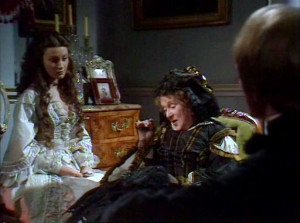
As for the hairstyles featured in "OUR MUTUAL FRIEND" . . . I have mixed feelings about them. I have no idea who the hairstylist was, but he or she did managed to come close in re-creating mid-19th century hairstyles. Only those worn by most of the younger female characters seemed to be loose curls or flowing curly hair in the style of those featured in many pre-Raphaelite paintings - especially by Lesley Dunlop and Polly James. Although such hairstyles were popular in mid-19th century art (especially in Britain), I have grave doubts that many women - or many young women between the 1840s and the 1860s wore their hair in such a manner.
Overall, I cannot deny that "OUR MUTUAL FRIEND" was a first-rate adaptation of Charles Dickens' 1864-1865 novel. Yes, I had a few issues that included the miniseries' photography, some writing decisions, a few over-the-top performances and the belief that I felt I was watching a filmed play. But despite these quibbles, "OUR MUTUAL FRIEND" also featured some top-notch performances from a cast led by John McInery and a screenplay by Julia Jones and Donald Churchill that did Dickens' novel proud.

#costume drama#period drama#period dramas#charles dickens#our mutual friend#our mutual friend 1976#victorian age#john mcinery#jane seymour#lesley dunlop#nicholas jones#warren clarke#leo mckern#polly james#andrew ray#ronald lacey#alfie bass#kathleen harrison#hilda barry#john collin#david troughton#ray mort#patricia lawrence#edmund bennett#peter hammond#john harmon#bbc drama#julia jones#donald churchill
1 note
·
View note
Text
Sometimes when I'm listening to older big finish or reading the edas I imagine 8 in the costumes that paul mcgann wore in our mutual friend as eugene wrayburn. Especially that cunty little cape and wide-brim zorro-style hat he had on when he was psychologically tormenting bradley headstone
#doctor who#8th doctor#big finish#eighth doctor adventures#edas#paul mcgann#our mutual friend#charles dickens#eugene wrayburn
10 notes
·
View notes
Text
Note to self: do not take your best friend on a possibly life-threatening hot girl walk 🚷
This week’s episode on Our Mutual Friend (1998) is out now, so you can hear more about Eugene Wrayburn and his questionable life choices wherever you get your podcasts!
2 notes
·
View notes
Text
Giving your child the first name of a fictional character is one thing, but giving them the character's surname as a middle name is quite another...
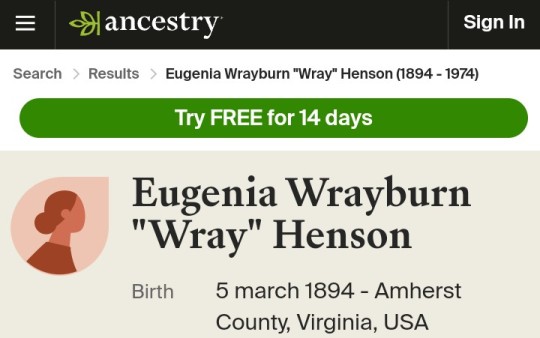
"Wray" seems to have absolutely owned it though
2 notes
·
View notes
Text
Not yet a hundred pages into Dickens' "Our mutual friend" and I am already in love with Mr Eugene Wrayburn:
-- 'his gloom deepens to that degree that he trifles quite ferociously with his dessert-knife.'
-- "I object on principle, as a biped, to being constantly referred to insects and four-footed creatures. I object to being required to model my proceedings according to the proceedings of the bee, or the dog, or the spider, or the camel."
-- 'Eugene is also in attendance, with a pervading air upon him of having presupposed the ceremony to be a funeral, and of being disappointed.'
However, the actual reason might be this:
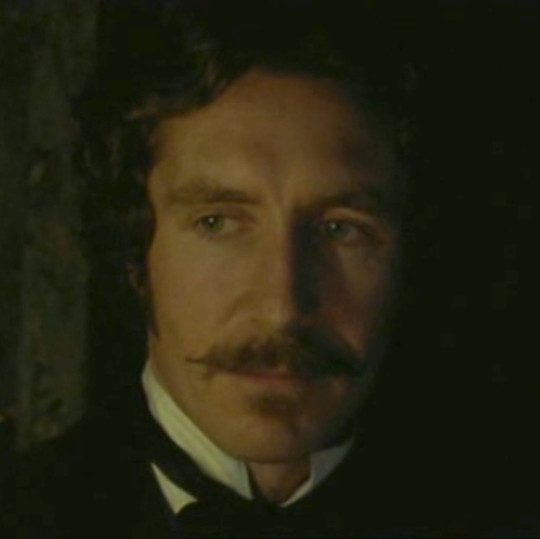
#The Web Of Art#thanks again Paul#paul mcgann#eugene wrayburn#our mutual friend#charles dickens#at first I thought the mustaches on this face is a crime against beauty#but Eugene Eugene.....
15 notes
·
View notes
Text
Our Mutual Friend: Eugene Wrayburn [INTP 9w8]
Our Mutual Friend: Eugene Wrayburn [INTP 9w8]
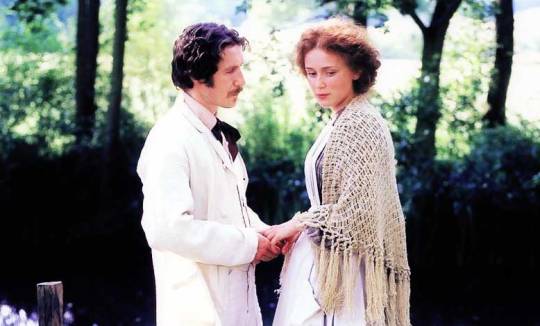
Function Order: Ti-Ne-Si-Fe Eugene is quite content to ‘laze about’ and think about things, philosophizing and not putting much effort into his work as a lawyer. He is very smart, and quickly learned all he needed to, to become a barrister, but has no aptitude for ambitious projects. He also is willing to use whatever advantage he can find, to solve the question of what happened to Lizzie Hexam.…
View On WordPress
15 notes
·
View notes